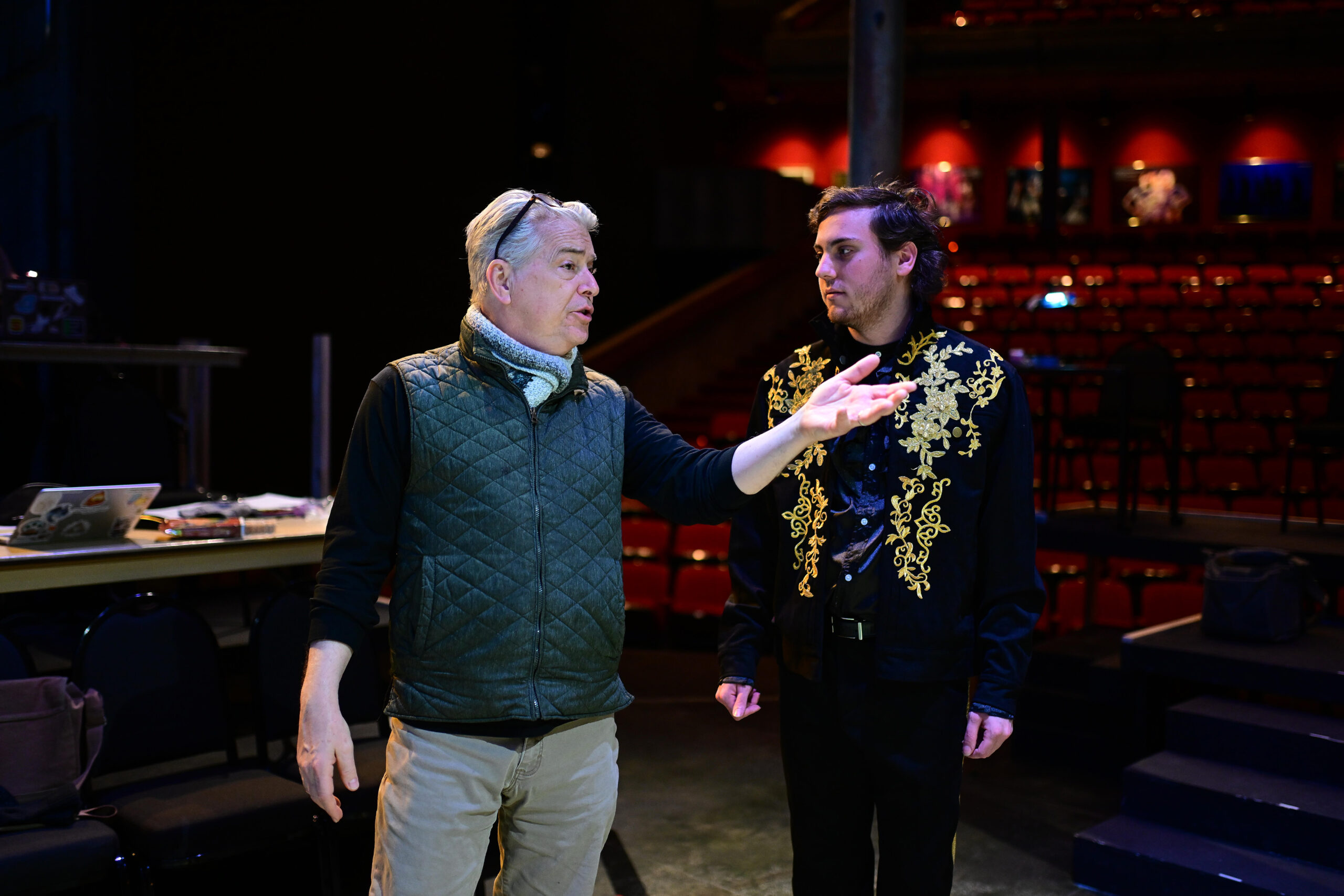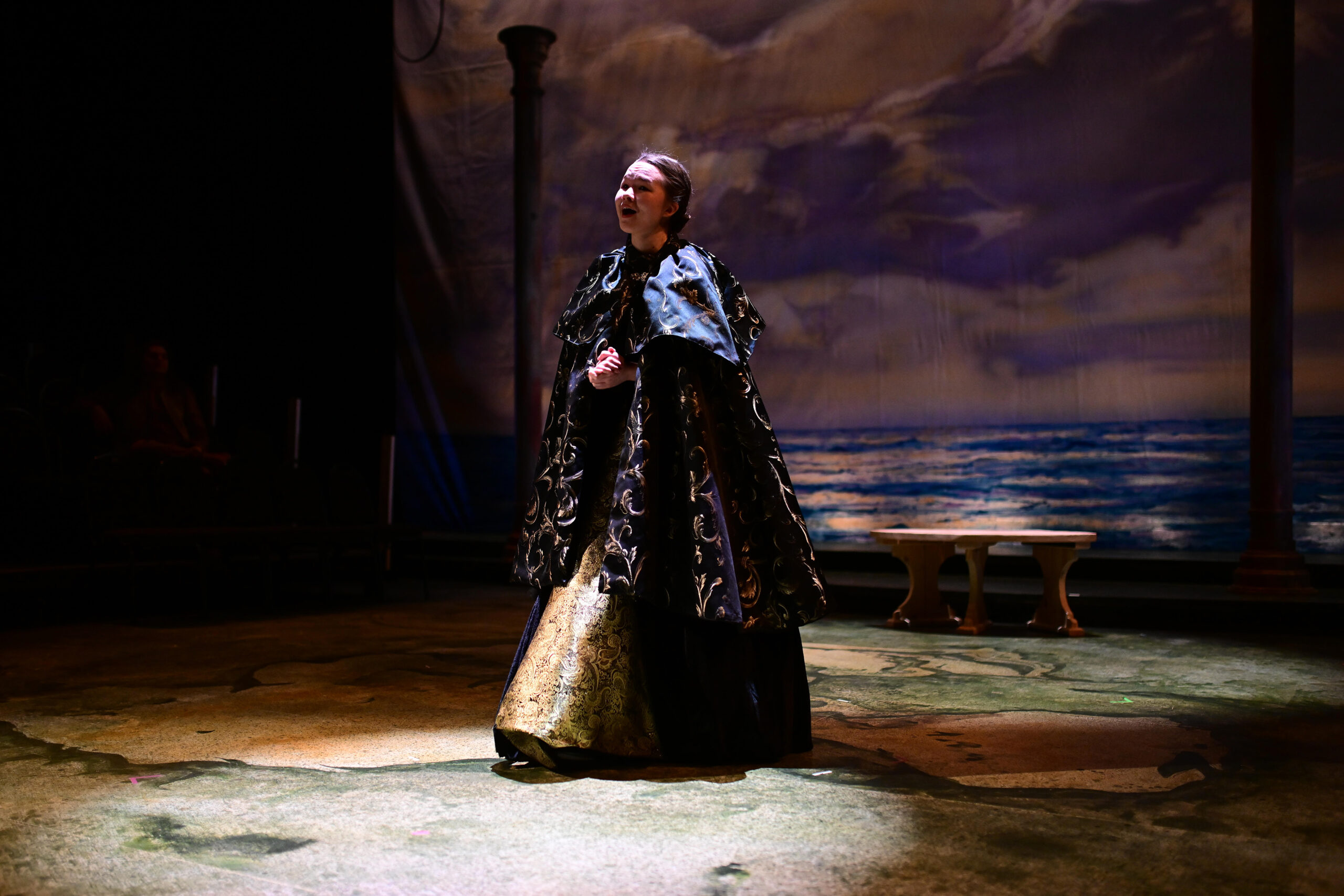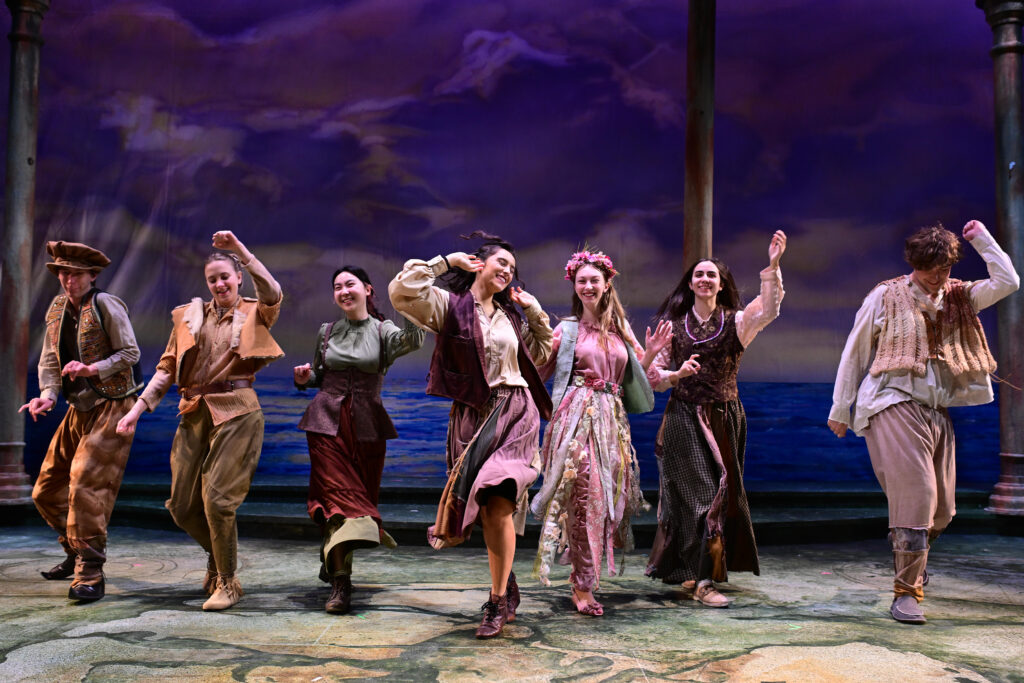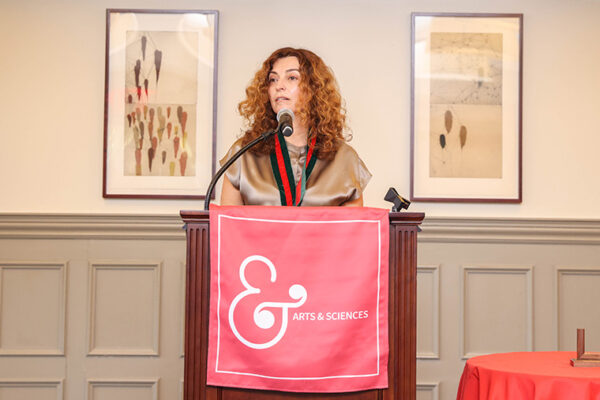
Leontes: Is he won yet?
Hermione: He’ll stay, my lord.
Leontes: At my request he would not.
William Whitaker is contemplating an embrace.
The moment comes late in “The Winter’s Tale.” Two characters, long estranged, finally make their peace. But this is no storybook ending. It follows egregious, life-altering harm.
“So how do you stage that?” asked Whitaker, a professor of practice in drama in the Performing Arts Department in Arts & Sciences at Washington University in St. Louis.
Whitaker, who will direct the Shakespeare classic beginning Feb. 23 in Edison Theatre, explained that an embrace can be many things. It can be joyous or helpless, exuberant or hesitant, desperate or gentle or overwhelming. It can acknowledge pain or shoulder too quickly past it.
“Sometimes an embrace says everything is OK,” Whitaker observed. “Other times it says, ‘I love you, I forgive you, but you broke my heart and we will never be the same.’
“That’s the embrace I want to stage.”

The problem of ‘problem plays’
Though the exact date is unknown, “The Winter’s Tale” most likely debuted at London’s Globe Theatre in the spring of 1611, just five years before Shakespeare’s death. It is often considered one of his “problem plays” — works, like “Measure for Measure” and “All’s Well That Ends Well,” that grapple with complex moral dilemmas and thwart strict definitions of comedy and tragedy.
“I think the ‘problem’ of these plays is often just the rich, grand, complex experience of being human,” said Whitaker, who has long taught in WashU’s Globe Theatre summer program. “Sometimes we’re foolish, sometimes we’re smart, sometimes we make terrible mistakes.”
“The Winter’s Tale” begins in Sicily. King Leontes begs his childhood friend Polixenes, king of Bohemia, to visit awhile longer. Polixenes demurs, citing responsibilities to his own domain. Leontes enlists his wife, Hermione, to make the case. Polixenes relents. Yet rather than celebrate, Leontes turns sour. He grows jealous.
“Suddenly, Leontes mistrusts his queen,” Whitaker said. “And he turns his whole world upside down.”

Dealing with injustice
Hermione is jailed for adultery. Polixenes flees assassination. A courtier flees from a bear. When Hermione gives birth in prison, Leontes orders the infant girl, Perdita, abandoned. Hermione and her elder son, Mamillius, succumb to grief.
Yet life goes on. The tone shifts. The story jumps forward 16 years. Perdita, saved by shepherds, remains unaware of her true lineage but is courted by the Bohemian prince, Florizel — much to the fury of his father.
“At first, you think Polixenes is this nice guy,” Whitaker said. “He was unjustly accused! But then we see the same old pattern, the same old patriarchs, trying to control the universe.”
Yet Shakespeare also provides models of true courage and leadership, in the loyal subjects who curtail the worst impulses of their kings.
“There is a strength in how things get resolved,” Whitaker said. “There is a kind of tough, patient benevolence — mostly on the part of women — in dealing with injustice. There is a way in which time is allowed to do its work.
“This is a late-career play, and I think as we get older, we start thinking differently,” Whitaker concluded. “Things aren’t just one or the other. There’s a sophistication here that’s really quite beautiful.”

Cast and crew
The cast of 21 is led by Tristan Dumas and Ella Sherlock as Leontes and Hermione, with John Noonan as Polixenes. Ava Morgan and June Camp are Perdita and Mamillius. Peter Michalski is Florizel. Hope McKinney is the defiant noblewoman Paulina.
Heather Anderson, Cole Becker and Rita Li are the Sicilian nobles Camillo, Cleomenes and Dion. Owen Farra is Paulina’s husband, Antigonous. Trinity Weinhaus and Eliza Rocks are the shepherds who rescue Perdita.
Cecilia O’Gorman is Emilia, Hermione’s lady-in-waiting. Zachary Nowacek is the vagabond Autolycus. Sofia La Rosa is the Bohemian lord Archidamus. Elizabeth Dowdell and Annie Powell are ladies-in-waiting. Rounding out the cast, in a variety of roles, are Ellen Schaaf, Jo Palisoc and AJ Harness.
Scenic design is by Robert Mogan. Costumes are by Asher Feinstein. Lighting and sound design are by Paige Samz and Gigi Taillon. Props are by Emily Frei. Rob Henke is master of the verse. Choreographers are Schaaf and Palisoc.
Henke and Schaaf also serve as assistant directors. Intimacy directors are Nikki Glaros and Sherlock. The stage manager is Zachary Cohn, with assistance from Juan Cortez and Olivia Gilbert. Isabelle Scheibe is stage management supervisor. Dan Giedeman is technical director.

Tickets
Performances of “The Winter’s Tale” will take place in WashU’s Edison Theatre beginning at 7:30 p.m. Friday and Saturday, Feb. 23 and 24; and at 2 p.m. Sunday, Feb. 25. Performances will continue the following weekend, at 7:30 p.m. Friday and Saturday, March 1 and 2; and at 2 p.m. Sunday, March 3.
Edison Theatre is located in the Mallinckrodt Student Center, 6465 Forsyth Blvd. Tickets are $20, or $15 for seniors, students and WashU faculty and staff; and free for WashU students. Tickets are available through the Washington University Box Office. For information, call 314-935-6543 or visit pad.wustl.edu.


